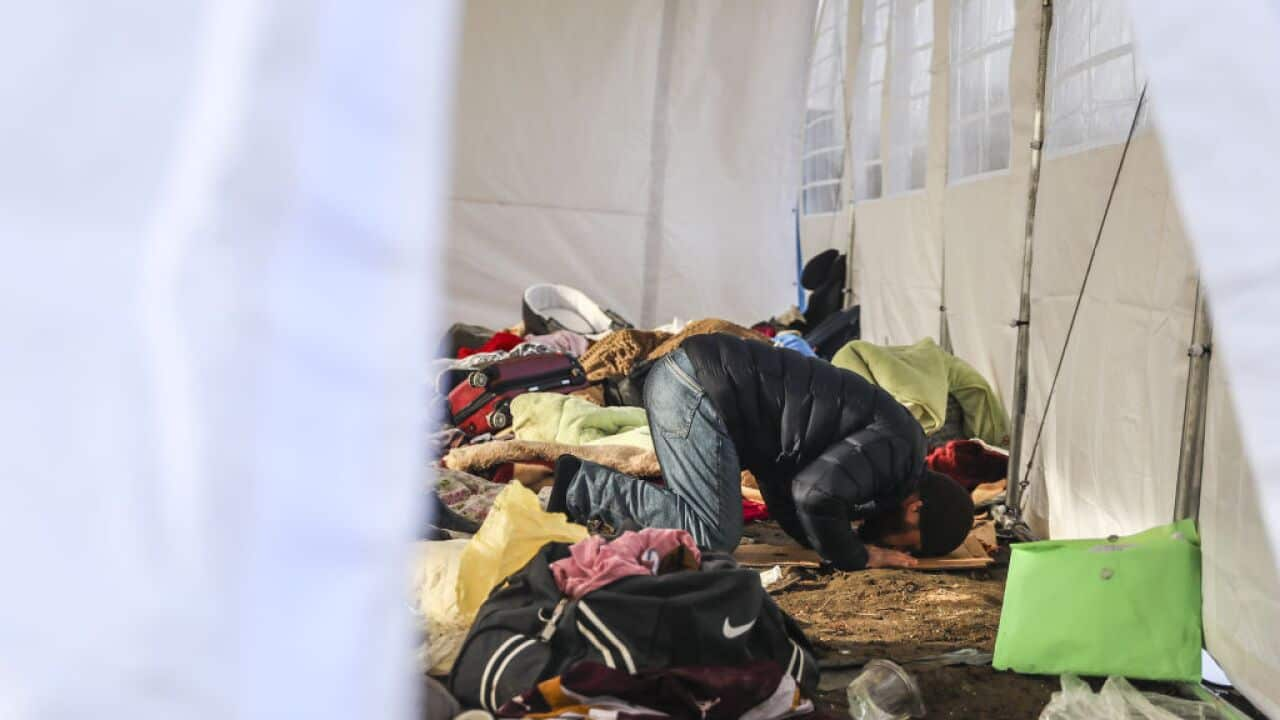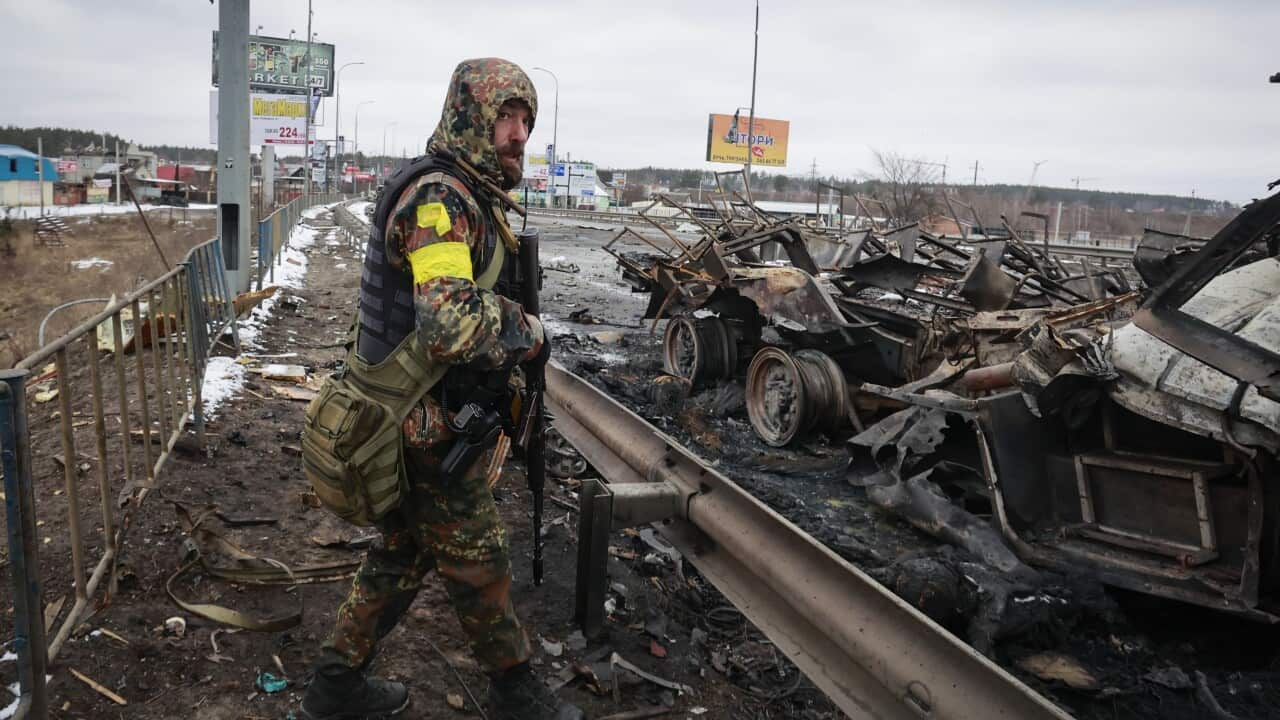The International Criminal Court prosecutor has launched an investigation into possible Russian war crimes in Ukraine, following a referral to The Hague by Australia and 38 other nations.
Australia was joined by the United Kingdom, United States, New Zealand, Canada and European partners in what constitutes the largest referral in the history of the UN's top criminal court.
The court's prosecutor Karim Khan said the investigation began immediately.
"Our work in the collection of evidence has now commenced," he said in a statement.
On 28 February, Mr Khan said the prosecutor's office had already found a "reasonable basis" that war crimes had been committed during Russia's invasion of Ukraine.
Amnesty International suspects at least 10 potential war crimes, saying it has verified sites where indiscriminate attacks have killed or wounded civilians, including children.
The sites include an explosion and cluster munitions at two kindergartens, missile strikes on a hospital and residential blocks and the destruction of civilian homes and vehicles.
Deputy Prime Minister Barnaby Joyce says Russia should learn from history, with the Ukrainian people prepared to fight for their land.
"When (Russia) went into Afghanistan they thought that'd be very quick - 10 years later they retreated from Afghanistan, it was a complete military, economic and social disaster for them," Mr Joyce told Sky News.
"I don't think for one second that people who love their land, just like we love Australia, are going to desert it. No matter what happens, this fight will go on into another form, into a guerilla form."
The deputy prime minister says Russian troops will continue to die in Ukraine from as long as they continue to occupy the country.
"Russian parents will be sending their children to another country that they don't want to be in, and the country there doesn't want them there, and they will die," Mr Joyce said.
"This'll go on for as long as the Russians intend to stay in the part of the world the Ukrainians call their home."
Labor's foreign affairs spokeswoman Penny Wong says the immediate priority of the international community needed to be using every available avenue to ensure Russia halts its invasion and withdraws.
"Our immediate priority must be to continue to put the pressure on Russia and obviously also provide haven for those who are fleeing this violence," she said.
Home Affairs Minister Karen Andrews said the exact number of people to be accepted from Ukraine on refugee visas was not yet decided.
Ms Andrews said Australia was providing humanitarian assistance to people fleeing Ukraine but she expected the majority of people who evacuated to neighbouring countries would seek to return to Ukraine as soon as possible.
It comes as Kherson in Ukraine's south became the first major city to fall under Russian control.
Australia joined other nations in opposing Russian aggression in Ukraine during an emergency session of the UN General Assembly.
There were 141 nations in favour of condemning Russia's actions, while five voted against, including Russia, North Korea and Syria.
A further 35 members of the UN abstained from the vote, among them China and India.
Australia's ambassador to the United Nations Mitch Fifield said Australia was firmly alongside other nations in support of Ukraine.
"We've chosen to stand with Ukraine and work against the scourge of war," he said.
"President Zelenskyy and the people of Ukraine, today, we have sent you the strongest sign we are with you, we've shown we will not let you go."
A RAAF aircraft carrying critical military equipment and medical supplies is on its way to Europe.
Australia had pledged $70 million in lethal and non-lethal military aid, including missiles and ammunition, to Ukraine following the Russian invasion.











